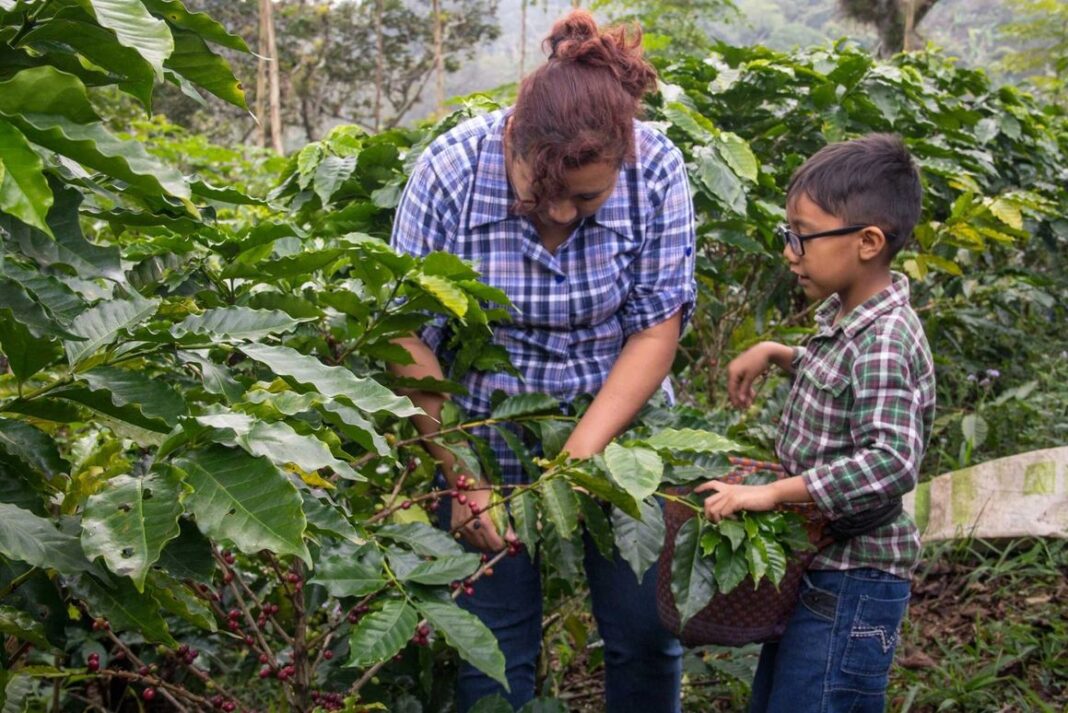VERACRUZ (Mexico) – Gisela Illescas is a Mexican campesina, agroecologist and “community feminist”. She is the coordinator of the “feminist coffee” brand Café Femcafé- Femcafe, which we have already talked about here. We managed to catch up with her in Veracruz, where the cooperative is based, to talk to her better and understand what her work in support of local women farmers consists of. A fair price, decent living and working conditions, a role in the company that is not gender-based. Utopia? No: it exists and is productive.
Femcafé defines itself as a feminist café: what does this mean?
“It means that it recognises the inequality gaps of rural women, especially in terms of access to land, which has led to less participation in decision-making spaces, less access to training, greater food insecurity and less access to the means of production. To position our coffee as feminist is to put women and youth at the centre, to recognise the importance of care work, to give them the opportunity to have a say in the income from the sale of coffee and also to create spaces for self-care and the strengthening of youth leadership.”
How and when was it born?
“It was born on 8 March 2015 in the region of the Great Mountains of Veracruz, Mexico, after a 24-year organisational process, it arose from the need to make visible and value the contribution of women in coffee growing. To recognise all the invisible women who for many years had no voice and who, through a brand, even if they are not the owners, can have an income from selling a percentage of the harvest, with the agreement within their families.”
What were the typical roles of women on Mexican farms before Femcafé was born?
“They participate in the whole production cycle, in the elaboration of seedbeds, in the grafting, in the nurseries and in the harvest, but when it comes to selling, those in charge of managing the money from the sale of the coffee were the men, because they were the owners of the land, now they continue to collaborate in the activities, but part of the harvest is sold directly by them and they receive the money from the sale and make decisions about its use.”
And now, what career can farmers’ wives develop?
“Now the women are directors in the cooperative and lead all the activities in the organisation, we have a master roaster who coordinates more women for all the processing of the beans, and the new generations are learning barista techniques.”
Femcafé also plays an important role in the price of coffee: how were you able to get the right rate for farmers?
“Our price is designed to cover part of the needs of the families, around 40%, another percentage is covered by the sale of other products such as herbal products, handicrafts or tourism. We had to recognise that the peasantry is a pluriactivity, that we should not depend only on coffee but that we have to generate other incomes, mainly food production.”
Could you tell us more about your production, what coffee you grow and what is your main country of export?
“The coffee we produce is agroecological, that is, it is produced under shade and in harmony with mother earth, taking care of the water, the soil, the biodiversity, the bees, the families and the communities. The coffee we produce is 100% Arabica, and we currently export green coffee to the United States and Germany. And we sell roasted and ground coffee in Mexico.”
How many farms does Femcafé have today?
“Currently 151 families are involved, on 318 small plots of land.”
Where can we find and buy Femcafe coffee?
“In Germany here, in the USA at this link, and in Mexico here.
What are the main goals you have achieved since your foundation and what are the next chapters for Femcafé?
“We have managed to have our own brand, we have improved our quality and now produce speciality coffee, we have improved the income of women (increased by 40%) and this has generated an empowerment of women, we have realised that when you have money available it generates greater confidence, considering that we have always lived in poverty and marginalisation. We are also learning how to run a business from a feminist perspective, such as having limited working hours, that men are co-responsible, that funds are available for new initiatives for women and youth, and that in the actions developed by the cooperative, budgets are allocated to self-care actions.
The next chapters we are working on is the opening of the first coffee shop that will be run by young people, we are also working on the recovery of traditional cooking knowledge to strengthen our food identity and support the tourism programme and continue working on self-care issues and online sales. We have many challenges, such as the lack of money for the collection of coffee, we still do not have our own land for the warehouse or offices, and we only have a computer, but we are united by the desire to have a life that is worth living in this rural context.”
















